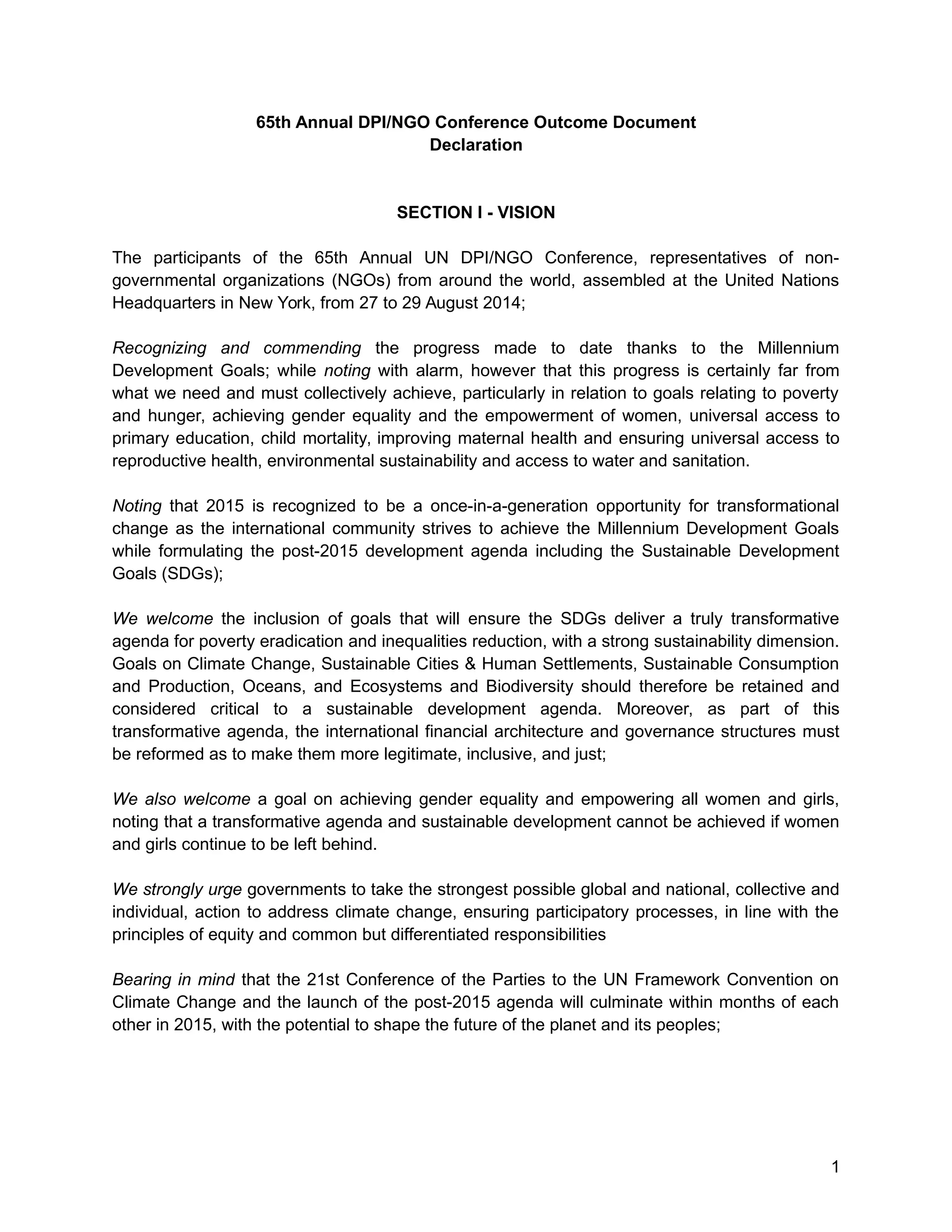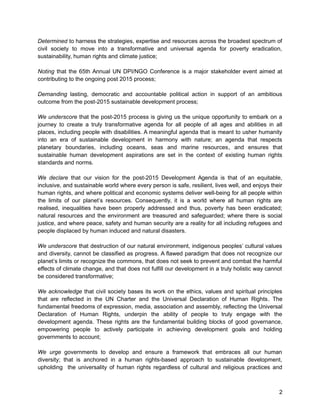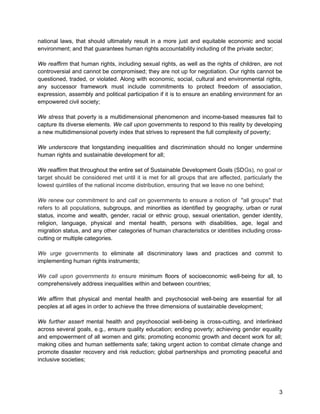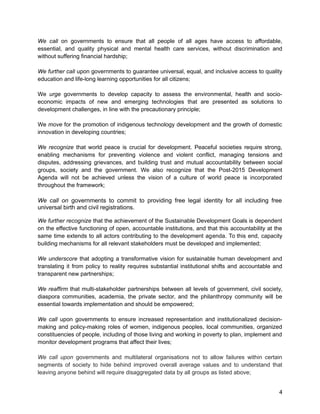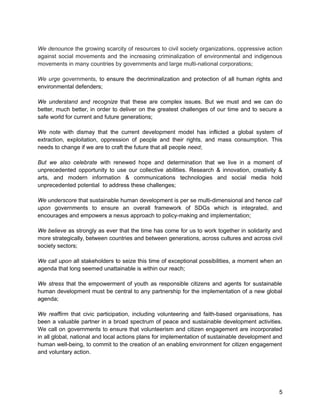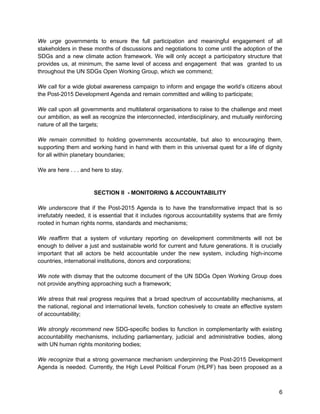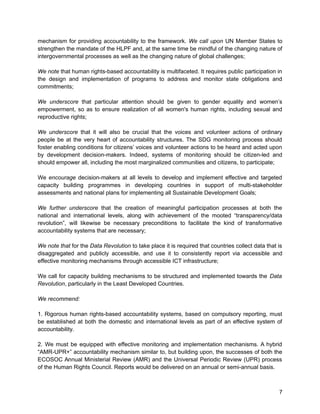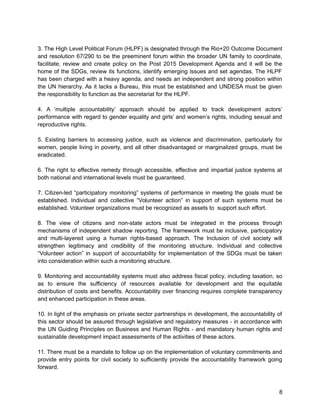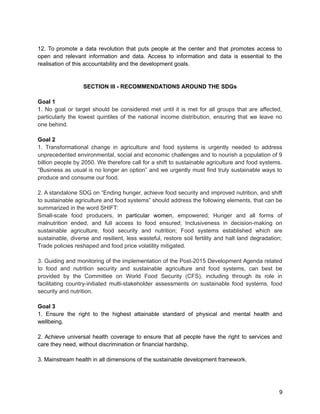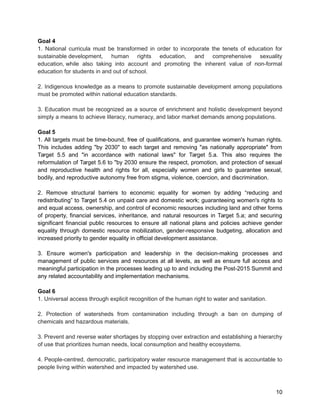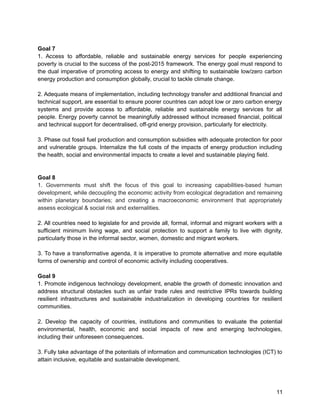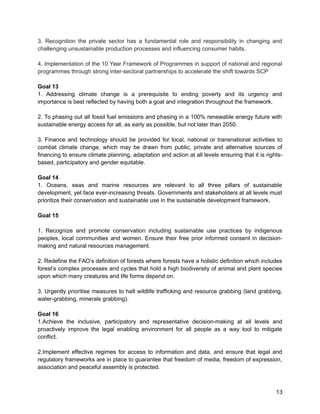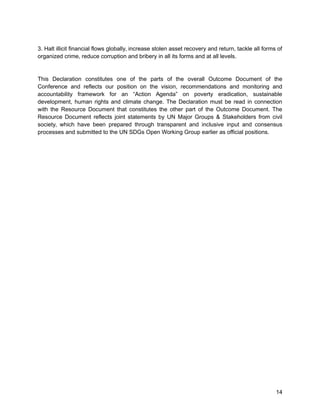This document outlines a vision for the post-2015 development agenda put forth by representatives of non-governmental organizations from around the world. The vision calls for an equitable and sustainable world where human rights are realized, inequalities are addressed, poverty is eradicated, and the environment is protected. It stresses the importance of upholding universal human rights, ensuring participation and accountability, and addressing discrimination and the needs of all groups.
